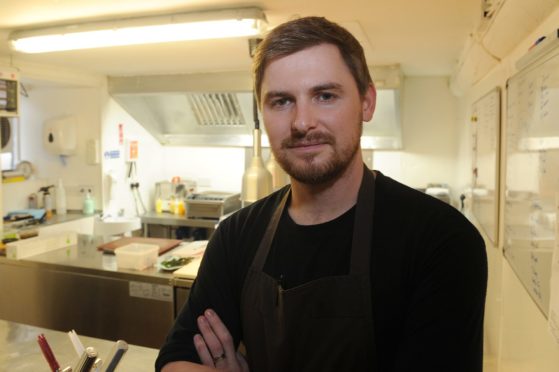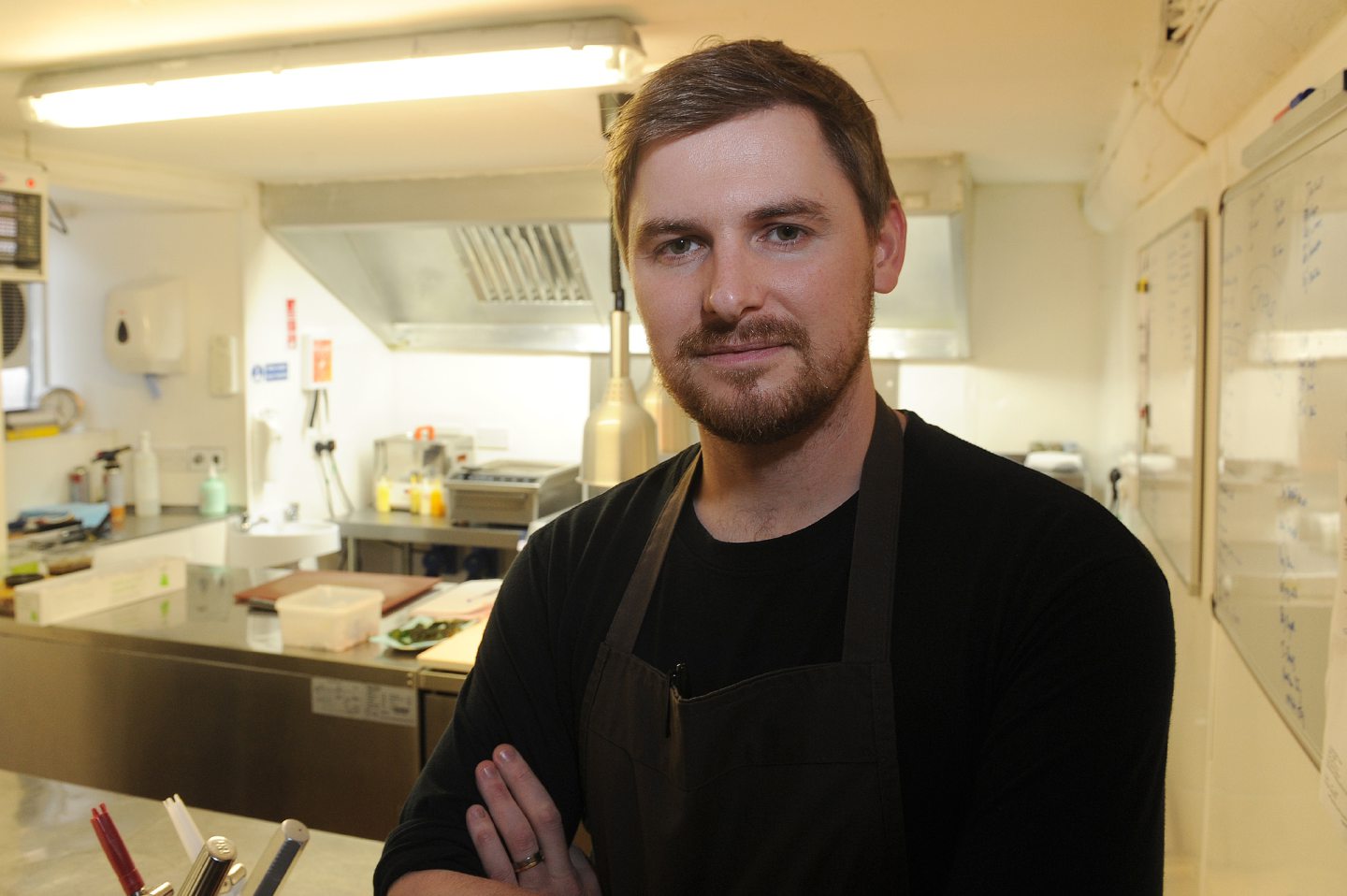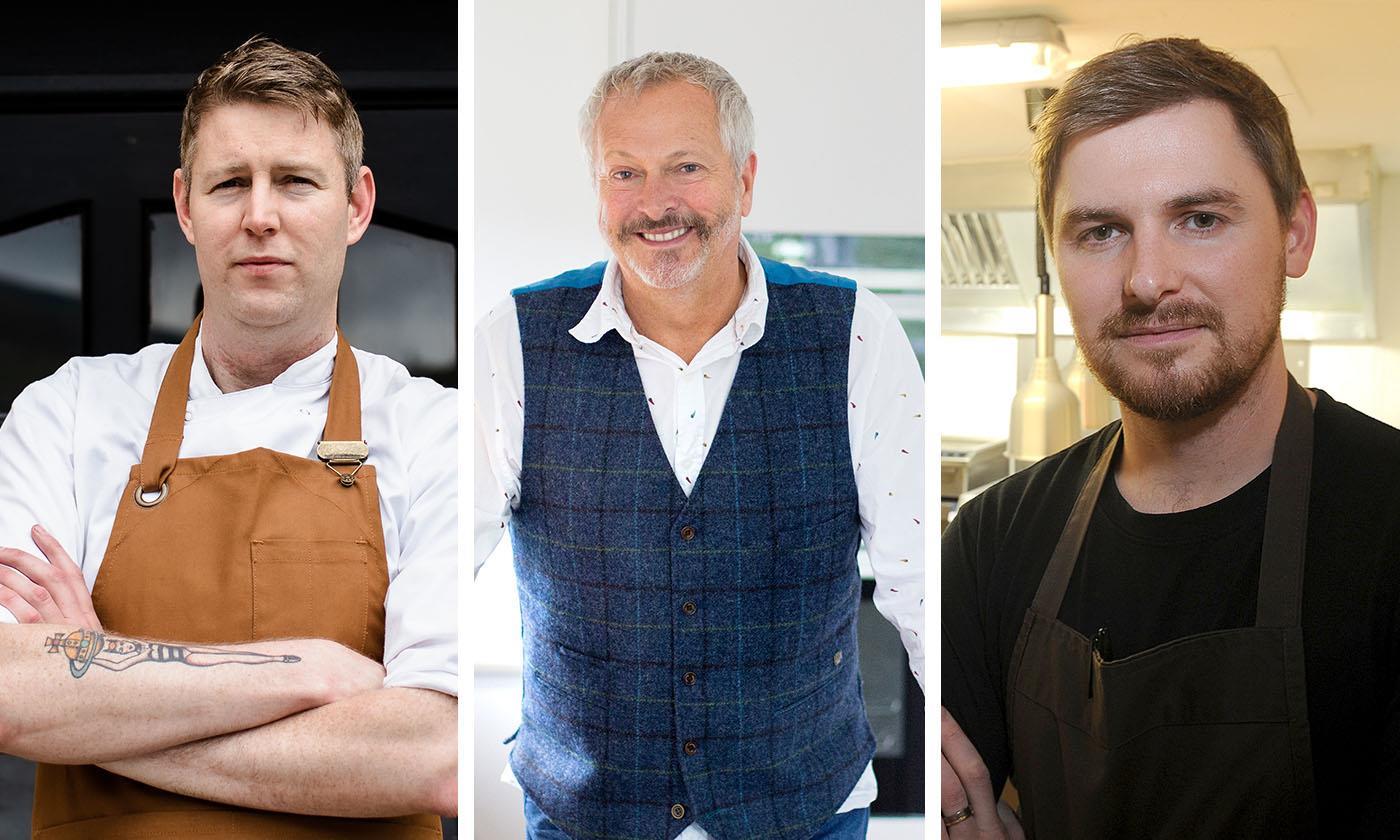In the second part of her three-part mini series, Julia Bryce talks to Billy Boyter of The Cellar in Anstruther, Fife, to find out why he’s adopting a four-day working week.
After Nick Nairn revealed his team work a four and a half day week, the head chef and owner of one Michelin star venue, has also made the decision to only open his restaurant four days a week to safeguard his staff’s wellbeing.
The popular eatery, which has bookings already secured up until the end of the year, will, from January 2022, open from Wednesday to Saturday, giving staff Sunday to Tuesday off to spend time with their family and loves ones.
Four-day week
Billy admits the idea is something he has been considering for the past year. However, he has finally revealed his future plans to staff and customers, all of whom have been very receptive to the news.
The move comes just days after abuse and harassment allegations against celebrity chef Tom Kitchin and some of the team at The Kitchin Group in Edinburgh came to light.
He said: “It is something I’ve thought about for over a year. There’s a real lack of young chefs coming through and it isn’t a desirable industry for people just now, and we have to make it that. One way to do that is to offer a shorter working week.
“The days you are working are still going to be challenging and long, but to only have to do that for four days and have a few days rest will be much more appealing.
“For the team who work for me, and myself included, having that bit more quality time with friends and family will be so beneficial. If we can absorb that cost as a business we should. We need to look after the people who work so hard for us.
“It is financially viable. We’re closed Monday and Tuesday, and only open Wednesday evening onwards, so to close all of Wednesday, all we needed to do was add an extra table of two for each service Thursday to Saturday – which is definitely achievable.
Having that bit more quality time with friends and family will be so beneficial. If we can absorb that cost as a business we should.”
Billy Boyter, owner of The Cellar.
“I decided from January next year that is what we will be doing. We have bookings in place for the rest of the year and need to honour those.
“With everything going on in hospitality I think it was the right move. To give the staff Sunday off means a lot to them. It made me glad I’ve made that decision seeing them so happy.”
Kitchen culture
Having worked in what Billy describes as “hard kitchens” himself, Billy knew he wanted to channel learnings from positive influences in his career, rather than negative when it comes to training his brigade.
He added: “We have to attract young people into this industry. Being a chef isn’t for everyone, but for me, it is a lifestyle choice. You do it for the love of cooking and the creativity of it.
— Billy Boyter (@billy_boyter) July 5, 2021
“It is unfortunate that we do have chefs in the industry who have been trained in this hard way with bullying. There’s a lot of people who aren’t like that.
“I’ve worked in kitchens and have experienced that sort of thing but that’s not made me like that. A lot of it comes down to the individual. It made me not want to be like that and made me want to ensure my team don’t experience that. I don’t want them going through what I went through.
“When I worked at Number One at Balmoral, it was a fantastic kitchen to work in. It was hard work and long hours, but it had such a family feel to it. Craig Sandle was my head chef at the time and there was a real togetherness. That has stuck with me more than the bad experiences.
3 Drill bits later It’s finally up. Finishing off the entrance beautifully. @MichelinGuideUK pic.twitter.com/P6JpL55DZV
— Billy Boyter (@billy_boyter) May 14, 2021
“It was the same experience with Kevin MacGillivray and Craig Miller when I was younger they were a father figure, rather than someone I was fearful of. Being a chef is all about managing people in the right way. You don’t need to scream at someone to get the best out of them.”
Read what Nick Nairn had to say on “SAS kitchens” in the first part of this mini series.
The next article will feature William Halsall, general manager and executive chef of Craigellachie Hotel in Speyside, and will be published tomorrow.



